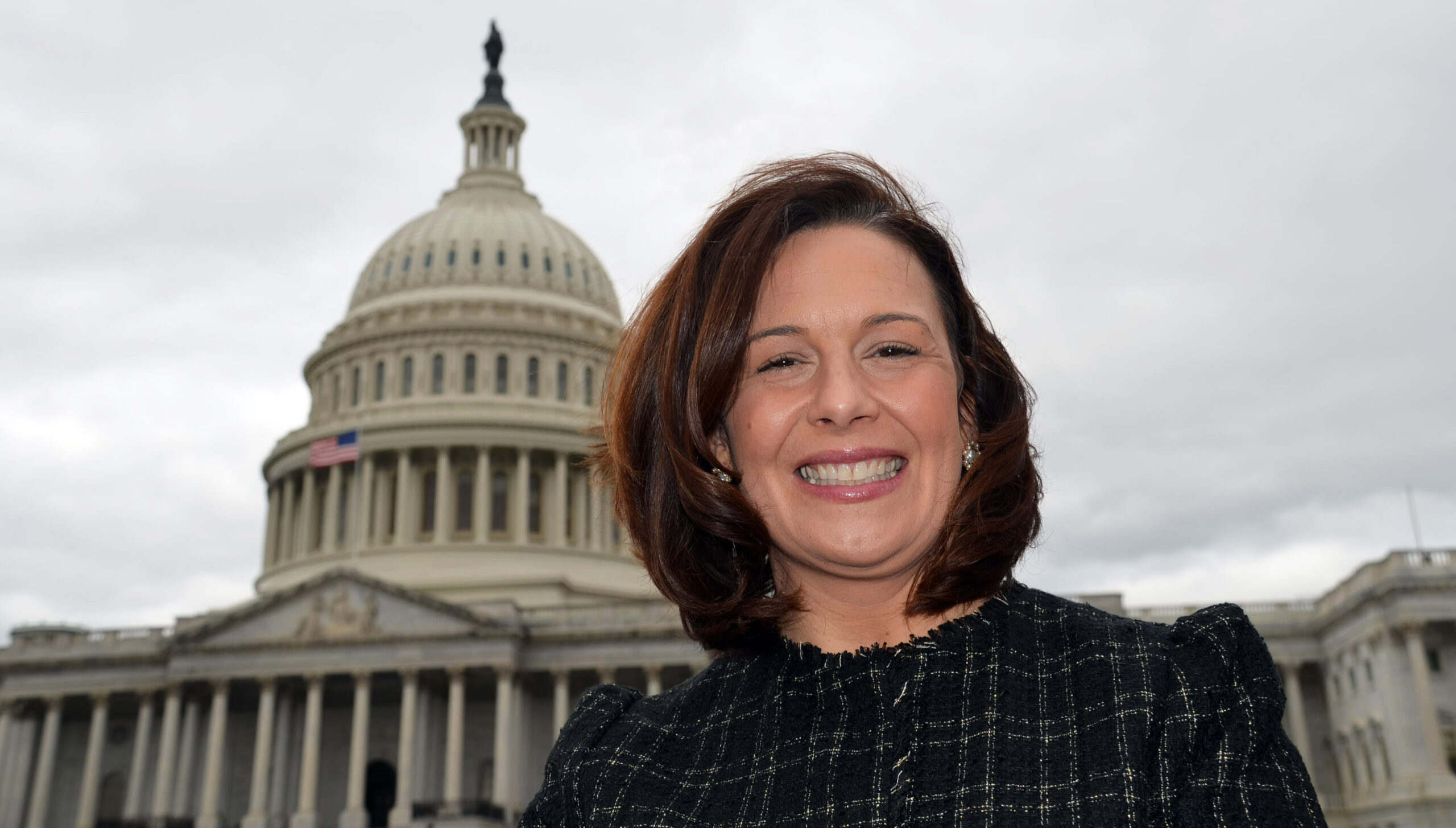Sarah Christa Butts ’07, social work, is used to battling society’s biggest problems, from ending homelessness to stopping family violence.
Now, the licensed master social worker is taking her advocacy straight to the top of the policymaking world on Capitol Hill. Her next-level challenge? Making sure that professionals working to protect society’s most vulnerable populations are themselves adequately protected.
“I’ve always been driven by social work values,” says Butts, Director of Public Policy for the National Association of Social Workers, for whom the work is incredibly personal. “We’re advocating for the needs of our clients and the social workers serving those clients.”
Education and Advocacy
In her new role, she educates and advocates among members of Congress and their staffs, federal agency officials, lobbyists, and political candidates, working to advance the goals of the world’s largest organization of social workers.
Her issue portfolio includes pay equity and adequate compensation for social workers and access to mental health and behavioral health care services, including substance use disorder treatment and workplace safety.
“UMBC has a special commitment to support
students like me and I am grateful.”
– Sarah Butts
For example, the “Protecting Social Workers and Health Professionals from Workplace Violence Act,” a recently introduced bipartisan bill, would direct federal grants to states to improve facility safety, provide safety training to staff, and purchase safety equipment for social workers and health professionals.
“Sometimes clients are in crisis. We are a lot like first responders,” says Butts. “Social workers work in a number of settings, including visiting clients in their homes. Unfortunately, we are disproportionately the victims of violence. Some social workers have died on the job, but this risk doesn’t stop us in our mission to help others.”
Butts also works to reduce student loans for social workers, who are required to have a high level of education but who are among the lowest-paid professionals in the workforce.
All of these issues address “what attracts and retains social workers,” says Robyn Golden, Associate Vice President of Population Health and Aging at Rush University Medical Center in Chicago. “More hard-to-reach populations will be better served as a result.”
Making Her Mark
Golden has worked with Butts on policy issues such as Medicare beneficiary’s access to social work services, and describes her as “a critical thinker and strategist.” “She balances her clinical knowledge with policy, and listens so well to both the client and constituent voice,” Golden says.
Social work students often follow one of two paths: policy work or clinical practice. Even as an undergraduate, Butts chose both.
“I was interested in the large systemic issues—managing the policy implications—but also in one-on-one practice,” she says.
As part of UMBC’s Title IV-E Education for Public Child Welfare Program, a collaboration with the Maryland Department of Human Resources to prepare social work students for public child welfare practice, Butts spent a year as a caseworker, providing services and going to court with children who had been removed from their homes.
Life’s Work
After receiving her bachelor’s of social work from UMBC, Butts earned a master’s of social work from the University of Maryland, Baltimore, and she is now pursuing a Ph.D. in public policy at UMBC.
“I’ve had such a great experience at UMBC. Grit and Greatness… I see myself in that slogan,” says Butts, who was a Pell Grant recipient. “I identify with being resilient, persistent, passionate about my work and striving for excellence and impact. I had to overcome a lot of complicated life circumstances, including losing my dad at nine years old, my mom’s substance use disorder and returning to college with a young daughter… UMBC has a special commitment to support students like me and I am grateful.”
Butts has held roles in state and local government, as well as nonprofits, including positions in Maryland’s Department of Human Services, Social Services Administration and the Family League of Baltimore. Prior to joining NASW, Butts served as the first executive director of the Grand Challenges for Social Work, a national initiative to collaborate on 12 of the United States’ most deep-rooted and pressing social problems. She’s also the founding administrator of the American Academy of Social Work and Social Welfare, an honorific society for the profession.
“She has always been able to make the connection between what social workers do, for who, and for how long with the larger policies,” says Carolyn Tice, Associate Dean and Professor in the School of Social Work. “She’s absolutely committed to equity and social justice and that permeates her work.”
– Laura Cech
Tags: CAHSS, GraduateSchool, PublicPolicy, social work, Spring 2020

